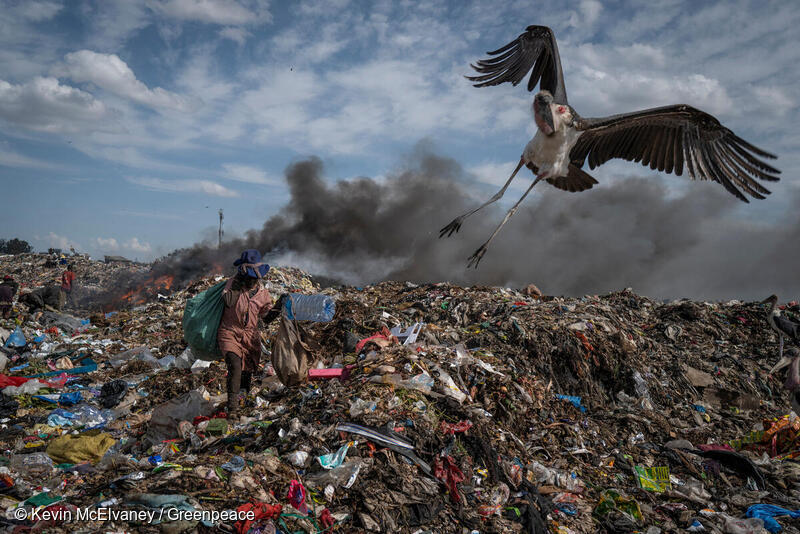On the Bargny beach, under the scorching Senegalese sun, a group of fifteen women stand united, each holding an empty gourd – a calabash bowl. Their faces mirror both determination and concern as they raise their fists in the air.
They have gathered for an action that transcends words; shedding a vivid light on an urgent issue: the scarcity of fish in Senegal and its severe impact on food security. In Senegal, women have been pivotal in ensuring food security. They are the custodians of culinary traditions and family recipes passed down through generations. They are the individuals who visit markets daily to purchase fresh fish, a staple in many Senegalese dishes.
“Our empty gourds are not just symbols; they’re a plea for immediate action. We stand here representing the voiceless oceans and the food security of our people.” says Fatou Samba, a fish processor who works in Bargny, Senegal.
However, in recent years, a silence has descended over Senegal’s markets. The once-bustling stalls with an abundance of fish are now noticeably less stocked. The empty gourds, used as bowls, which are held by these women serve as a stark reflection of this reality. Once-plentiful fish are now increasingly scarce, a situation exacerbated by overfishing, unsustainable practices, and environmental changes.
“The scarcity of fish isn’t just about food – it’s about preserving our heritage. Our actions today echo our commitment to safeguarding both.” – Fatou Samba
The powerful and silent act of these fifteen women, standing united with their empty gourds, is a call to action. It emphasizes the critical nature of food security and highlights how the scarcity of fish adversely affects the nutrition, health, and livelihoods of Senegalese families. These women speak for the ocean, an ecosystem that has nourished their nation for generations. They underscore that preserving the oceans is a matter of survival for Senegal.
In the past, the return of our mothers from the market, their calabashes abundantly garnished with bright colors and fresh fish to concoct succulent dishes, was a marvelous and culturally profound spectacle. Today, a collective effort is needed to bring these gourds back to life.
Amagor Robert NIANG
Communication officer Greenpeace Africa – Senegal
[email protected]


